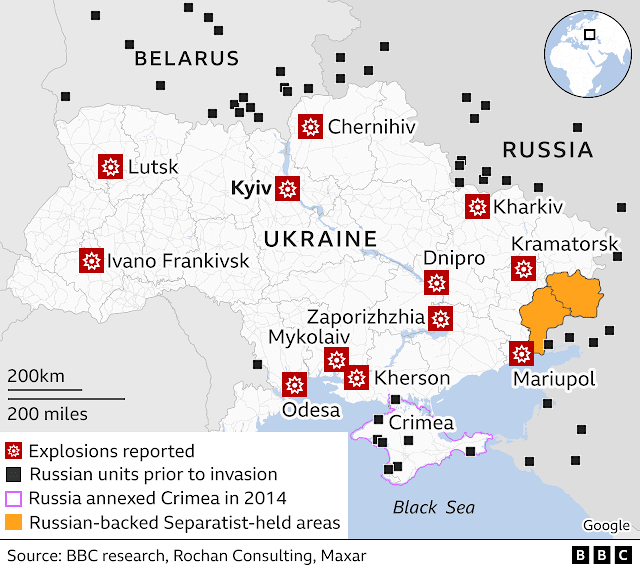ANALYSIS: German Military Re-Born, the Unintended Effect of Putin's Invasion of Ukraine
When President Putin invaded Ukraine a week ago, it was unclear (and it remains so) what his end goal exactly is. The invasion is also not believed to have gone as planned, with high casualties and heroic defensive actions by the Ukrainian people preventing the swift Russian victory Putin will have hoped for. Indeed, though Putin's exact goals in Ukraine remain a mystery, one overarching aim was for Putin to push back at the western military alliance of NATO. However, indirectly, Putin seems to have revived NATO in ways not seen since the end of the Cold War. The allies have co-operated remarkably smoothly and been given a new sense of purpose due to the brazen Russian military aggression. A major facet of this revival of NATO, has been the dramatic change in the stance of Germany. A nation formerly criticised for its lacklustre military and commitment to NATO has now dramatically turned the tables, in many ways re-birthing the German military.
A Military Re-Born
The German Chancellor, Olaf Scholz in a special session of parliament, discussed the German reaction to the Russian invasion of Ukraine. Within the session, he announced a major shift in German defence policy, committing 100 billion euros in military spending as he promised a revitalisation of the German armed forces. Scholz stated "It is clear we need to invest significantly more in the security of our country, in order to protect our freedom and our democracy...We will from now on, year after year, invest more than two percent of gross domestic product (GDP) in our defence." This was a major change in the German military political landscape, having failed repeatedly to hit the NATO spending target, much to the frustration of its allies. Indeed, the change is even more remarkable when considering the composition of the current coalition government in Germany, which includes the Green Party, which was its roots within the pacifist movements of the Cold War period. Now, Germany is breaking even further from that past, declaring that it would supply the Ukrainian military with weaponry. Previously, the German government had refused to send weapons to Ukraine, citing its historical responsibility to harbour a pacifist approach towards conflict in eastern Europe. This also halted the supply of German made weapons held by other nations, infuriating Estonia who had wanted to send old East German artillery pieces to Ukraine before the conflict even broke out. Now, 1000 anti-tank weapons as well as 500 'Stinger' class surface-to-air missiles are being sent from Germany to Ukraine.
Perhaps more importantly long term, is the further announcements that have effectively killed off the Nord Stream 2 pipeline. This pipeline would have left Germany remarkably vulnerable to Russian gas, with Poland, the Baltic States and the United States all being vocal opponents of its construction. In response to the cancellation, two new terminals for liquified natural gas are being constructed at Brunsbuttel and Wilhelmshaven in northern Germany.
The decision to meet NATO's target for defence spending garnered a mixed response from German lawmakers. Some booed in a show of disapproval, whilst some clapped and cheered at the remarkable turnaround. What is for certain, is that the rest of Europe let out a collective sigh of relief. Germany was finally willing to bury the demons of its past, to take up its role as a vital defender of freedom, a defender of democracy and a defender of 21st Century Europe.
 |
| German Chancellor, Olaf Scholz alongside the German, European Union and Ukrainian flags. |
For our two previous articles detailing both Germany's failure to meet its NATO spending target as well as the issues with the Nord Stream 2 pipeline, please see the links below:
https://mundusreport.blogspot.com/2022/02/analysis-has-germany-become-liability.html
https://mundusreport.blogspot.com/2022/01/topic-nord-stream-2-and-its.html


Comments
Post a Comment